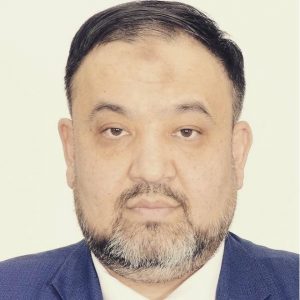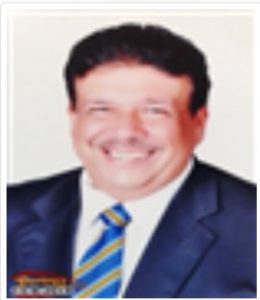The State of CARcinogen EXposure (CAREX) in Asia
APOCP's Scientific Symposium, Dec. 15 and 20, 2021
Rationales and Objectives
The International Agency for Research on Cancer (IARC) has evaluated more than 900 agents and classified more than 400 as known or suspected carcinogens. Of these, 168 individual agents and 18 exposure situations (particular jobs or industries) are found in occupational environments. Accordingly, much epidemiological study of the carcinogenic properties of various agents occurs in occupational settings, where exposures are often higher than in the general environment. In both occupational and environmental settings, exposure to known and suspected carcinogens is modifiable, and measures aimed at reducing or eliminating exposures will contribute to a lower risk of developing cancer in the future.
At the 10th APOCP General Assembly, the importance of addressing the occupational and environment exposure to known carcinogens was highlighted, and a future event related to carcinogen exposure was approved.
This event follows the 10th APOCP’s General Assembly meeting recommendation and aims to address the magnitude of exposure to established carcinogens throughout countries of Asia and Pacific. The symposium goal is to develop a network of scientist interested in CARcinogens EXposure (CAREX) from different countries of Asia with an ultimate goal of helping establish the registry of exposure to established IARC Group 1, 2 carcinogens.
Symposium objective is mainly networking: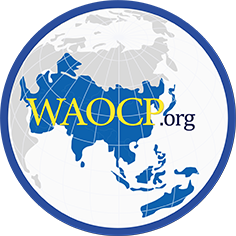
Bringing together scientists, government regulators from around Asia and pacific Region, the CAREX Symposium provides a forum to discuss, address and plan for future achievements in identifying, mapping, tagging of carcinogens in our environment. The Symposium program delivers exclusive networking and engagement opportunities with influential participants in one convenient and extraordinary venue. The ultimate aim of this symposium is to establishing a re-occurring event of CAREX symposium in Asia and Pacific parallel to others APOCP’s regional and Asia wide scientific conference and activities.
Other Objectives:
- Discuss the challenges of the CARrcinogen EXposure (CAREX) in Asia.
- To develop a comprehensive understanding of how can Carcinogen exposure can be minimized
- To provide a forum that different countries of Asia present their experience of risk management and regulation in regard to known carcinogens.
- To map the public health magnitude of risk of exposure to environmental and occupational exposure to ambient carcinogens in the environment
- To develop a network of scientists and administrative involved in the carcinogen regulation throughout countries of Asia.
- To help develop a new source of information about carcinogens magnitude, exposure quantity and circumstances, risk assessment and management in different population in Asia.
Target Audience: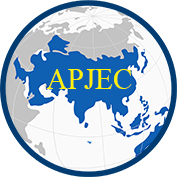
- Cancer control and prevention scientists
- Environmental and Occupational Epidemiologist and hygienist
- Regulatory and risk monitoring officers
- Biochemist and cellular and molecular scientists who work on carcinogenesis mechanism
Organizers and Sponsors:
- Asian Pacific Organization for Cancer Prevention (APOCP), Kolkata, India
- West Asia Organization for Cancer Prevention (APOCP’s West Asia Chapter), Iran
- National Cancer Control Charity Foundation, Tehran, Iran
- Asian National Cancer Centre Alliance, Tokyo, Japan.
- Central Asian Cancer Institute, Astana, Kazakhstan.
The Scientific Committee
Keynote Speakers:
 | 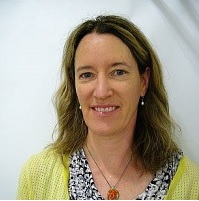 |
| Dr. CHERYL PETERS Co-Principal Investigator, CAREX Canada | Dr. M. Schubauer-Berigan |
The Core APOCP Team
DR. LE TRAN NGOAN, Hanoi Medical University, Vietnam |  Dr. Alireza Mosavi JarrahiShahid Beheshti University of Medical Sciences, Iran |
Prof. David Roder University of South Australia, Australia |
Dr. Maqsood Siddiqi Cancer Foundation of India, India |
Kishore Kumar Pradhananga Kathmandu Cancer Center, |
Prof. Sue Park Seoul National University, Seoul, S. Korea |
Dr. Anotone Barchak Petrov Research Institute of Oncology, Russia |
Dr. Suleeporn Sangrajrang National Cancer Institute, Bangkok Thailand |
Faculty of Medicine |
Prof. Nurbek Igissinov Central Asian Cancer Institute, |
Prof. Elsayed I. Salim Tanta University, Tanta, Egypt | 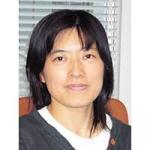 Prof. Manami InoueThe University of Tokyo Tokyo, Japan |
 |
Asian pacific Journal of Environment and Cancer (APJEC) |
Country Presenters
South Korea:
| Prof. Inah Kim Occupational & Environmental Medicine College of Medicine / Graduate School of Public Health Hanyang University | Dr. Kyoung-Nam Kim, | Dr. Kwanpli Ko, Department of Preventive Medicine, Gachon University College of Medicine, 38-13 Dokjeom-ro 3beon-gil, Namdong-gu, Incheon, South Korea |
Malaysia
Prof Dr Shamsul Azhar Shah Professor of Epidemiology and Statistics, | Dr Jaseema Begum Binti Nazir Khan Director and | Prof Dr Ahmad Faizal Abdull Razis Faculty of Science and Food Technology |
Thailand:
Dr. Suleeporn Sangrajrang Deputy Director, Health System Development, National Cancer Institute, Bangkok, Thailand | Prof.Chatchai Ekpanyaskul, Assistant Prof. Graduate School, Srinakarinwirot University, Bangkok, Thailand |
Russia:
Dr. Anotone Barchak Petrov Research Institute of Oncology, Russia | Prof. David Zaridze Director of the Institute of Carcinogenesis, N. N. Blokhin Russian Cancer Research Centre |
India:
Dr. Madhumita Roy, Head of Environmental Carcinogenesis, at CNCI, Kolkata | Dr. Maqsood Siddiqi Cancer Foundation of India, India |
Kazakhstan:
Prof. Nurbek Igissinov Central Asian Cancer Institute, | Professor Bersimbaev Rakhmetkazhi Iskendirovich Doctor of Biological Sciences, National Academy of Sciences of the Republic of Kazakhstan |
Iran:
Dr. Saeid Yari Occupational Health, Shahid Beheshti University of Medical Sciences, Iran | Dr. Mohammad Hossien Saghi, Environmental Health, Sabzevar University of Medical Science, Iran | Dr. Mohammad NorMohammadi Occupational Health, Mashhad University of Medical Sciences, Mashad, Iran | Prof. Narges Khanjani Epidemiologist, Kerman University of Medical Sciences, Kerman, Iran |
Vietnam:
Dr. Le Vinh Giang Hanoi Medical University, Vietnam | Dr. Luong Mai Anh Ministry of Health, Hanoi City, Vietnam | Dr. Nguyen Thi To Uyen Thai Nguyen Medical School, Vietnam | Dr. Le Thi Thanh Xuan Hanoi Medical University, Vietnam | Dr. Le Thi Hong Hao National Institute for Food Control, Vietnam | Dr. Tran Ngoc Dang University of Medicine and Pharmacy, Vietnam
|
Turkey:
Prof. Engin Tutkun, Yozgat Bozok University, Department of Public health, Turkey | Ass. Prof. Ayse Coskun BeyanDokuz Eylul University, Department of Occupational Medicine, Turkey | Dr. Mehmet Erdem AlagüneyKonya City Hospital, Department of Occupational Medicine, Turkey |
Sir Lanka
Dr Inoka Suraweera Consultant Community Physician, Environmental & Occupational Health Directorate, Ministry Of Health, Sri Lanka | Dr Nirosini Adikaram Senior Registra, Environmental & Occupational Health Directorate, Ministry Of Health, Sri Lanka | Dr Bhanuja Wijayatilaka Consultant Community Physician, Food Control unit, Ministry of Health , Sri Lanka | Dr. Hemantha Amarasinghe Oral Health Unit, Family Health Bureau, Colombo 10, Sri Lanka |
The Theme and Tentative Program
The International Agency for Research on Cancer (IARC) has evaluated more than 900 agents and classified more than 400 as known or suspected carcinogens. Of these, 168 individual agents and 18 exposure situations (particular jobs or industries) are found in occupational environments. The Symposium is going to organize its theme and program so that all carcinogens are addressed. The following topics will be extensively covered in different sessions:
- The Burden of Carcinogens Exposure in different population of Asia
- Carcinogenesis: Mechanisms, identification, and Manifestations
- Carcinogens:
- Chemical substances

- Acetaldehyde,[2] found in alcoholic beverages
- Aflatoxins
- 4-Aminobiphenyl
- Aristolochic acids, and plants containing them
- Arsenic and inorganic arsenic compounds[note 1]
- Asbestos
- Azathioprine
- Benzene
- …
- Chemical substances
- Physical agents and Radiations
- Phosphorus-32, as phosphate
- Plutonium
- Radioiodines, short-lived isotopes
- Radionuclides, α-particle-emitting

- Radionuclides, β-particle-emitting
- Radium-224
- Radomn products
- Environment and carcinogens
- Asbestos
- Silica
- Diesel Engine Exhaust
- Welding Fumes
- Biological agents:
- viruses
- bacteria
- Worms
- Prevention strategies and carcinogen and exposure monitoring and registry
Participation in the Meeting
There will be two categories of scientists who is a want to participate:
Participant who want to have a live presentation in the symposium. These participants need to send an abstract for the meeting. Abstract will be evaluated and decided on. Abstract accepted for oral pretension will have the chance to present live online in one of the sessions. Accepted abstracts must be presented during the session and already have his slides prepared and sent to organizing committee for preparation. The details on how to prepare the presentation will be sent to the applicant later. To send an abstract, please click on this link, register, and then you will be prompted for abstract submission.
All the accepted abstracts will be published and received DOI as the symposium abstract book. |
- Participant who just want to participate with no presentation. This category of participant must register with meeting to participate. There is no registration fee for participation. Each session is limited to 100 participants. Due to technical limitation, the first come, first served strategy will be applied. The first comers are those who register for the meeting earlier. To register, please click on this link.
Publish Your paper with: |
Asian pacific Journal of Environment and Cancer (APJEC) |
Young Investigator Awards
In order to encourage young investigators to present their research, there will be five awards of 300 US dollars to be given to five young scientists with the best presentation in the different categories of the carcinogens. A panel of experts who constitute the prize committee will decide on selecting the candidate for the prize. The candidate will be selected from those who present their research live in the meeting. The decision about the candidate will be announced at the closing ceremony on the last day of the event.
The Young Investigator Awards is supported by the APOCP’s West Asia Chapter .
 |
West Asia Organization for Cancer Prevention (WAOCP), APOCP’s West Asia Chapter |
The Symposium Agenda is divided into two sessions. The first session will be held on Dec. 15th, 2021 and the second session will be held on Dec. 20th, 2021. The details of the sessions are as follows:
Download a PDF file of the agenda
First Day: Dec. 15th, 2021
TIME: (8:30 to 10:30 Paris times) (10:30 to 12:30 Istanbul Time) (11:00 to 13:00, Tehran times), (14:30 to 16:30 Hanoi time), (13:30 to 15:30 Dehli Time), and (16:30 to 18:30 ،Tokyo Time). (16:30 to 18:30 ،Seoul Time).
Plenaries Prof. Le Tran Ngpoan, Hanoi Medical University, Vietnam. Prof. Ihan Kim, Occupational & Environmental Medicine, Hanyang University, S. Korea Prof. Engin Tutkun, Yozgat Bozok University, Department of Public Health, Turkey | ||
Tehran Time | Presenter name | Title |
11:00 – 11:05* | Welcome Remarks: Prof. Maqsood Siddiqi, President, Asian Pacific Organization for Cancer Prevention (APOCP), Cancer Foundation of India, Kolkata, India | Welcome message |
11:05- 11:10* | Opening Remarks: Dr. Alireza Mosavi Jarrahi, Medical School, Shahid Behehsti University of Medical Sciences, West Asia Organization for Cancer Prevention, Iran | Introducing the CARcinogen EXposure (CAREX), the APOCP’s new initiative in Asia |
11:10 – 11:35* | Keynote Speaker: Dr. Roland Wedekind, Deputy Branch Head, The International Agency for Research on Cancer (IARC-WHO), Lyon France | Overview of occupational carcinogens identified by the Monographs program and high-priority occupationally relevant agents proposed for evaluation during 2020-24 |
11:35 – 12:00* | Keynote Speaker: Dr. CHERYL PETERS, Co-Principal Investigator, CAREX Canada, Adjunct Assistant Professor, Preventive Oncology & Community Health Sciences, Cumming School of Medicine, University of Calgary, Canada | CAREX Canada, the plan, the experience, and the achievements |
12:00 – 12:10* | Prof. Dong-Hee Koh, Department of Occupational and Environmental Medicine, International St. Mary’s Hospital, Catholic Kwandong University, Incheon, Korea | The CAREX initiative in S. Korea |
12:10 – 12:20* | Prof. Engin Tutkun, Yozgat Bozok University, Department of Public health, Turkey | The CAREX initiative in Turkey, the plan and the road map. |
12:20 – 12:30* | Dr. Saeid Yari, School of Public health, Shahid Behehsti University of Medical Sciences, Iran | The CAREX initiative in Iran, the plan and the road map. |
12:30- 12:40 | Dr. Motoki Endo, Department of Public Health, Juntendo University, Tokyo, Japan | Cancer and Work in Asia |
12:40 – 13:00 | Moderator: Prof. Le Tran Ngoan | Discussion on APOCP’s initiative on CAREX in Asia |
The scheduled time is in Tehran times. Please visit this site to see your time!
Second day: Dec. 20th, 2021
TIME: (8:30 to 10:30 Paris times) (10:30 to 12:30 Istanbul Time) (11:00 to 13:00, Tehran times), (14:30 to 16:30 Hanoi time), (13:30 to 15:30 Dehli Time), (16:30 to 18:30, Tokyo Time), (16:30 to 18:30 ،Seoul Time)
Plenaries Prof. David Roder, University of South Australia, South Australia, Australia Dr. Ayşe COŞKUN BEYAN, Dokuz Eylul University, Department of Occupational Medicine, Turkey Dr. Madhumita Roy, Head of Environmental Carcinogenesis, at CNCI, Kolkata, India Dr Nirosini Adikaram, Senior Registrar, Environmental & Occupational Health Directorate, Ministry Of Health, Sri Lanka | ||
Tehran Time | Presenter name | Title |
11:00-11:10 | Prof. Sue K. Park: Next President, Korean Society of Cancer Prevention (KSCP). | Welcome message and the Opening remark |
11:10 – 11:25* | Dr. Engin Tutkun: Yozgat Bozok University, Department of Public health, Turkey | Environmental Arsenic Exposure and Cancer in Turkey |
11:25- 11:40* | Dr. Narges Khanjani: Epidemiologist, Kerman University of Medical Sciences, Kerman, Iran | opium a new carcinogen |
11:40 – 11:55* | Dr. Le Tran Ngoan: Hanoi Medical University, Vietnam | Carcinogen exposure in food consumption |
11:55 – 12:10* | Dr. Madhumita Roy, Head of Environmental Carcinogenesis, at CNCI, Kolkata, India | Prevention of arsenic induced squamous cell carcinoma of the skin by black tea |
12:10 – 12:25* | Dr. Ayşe COŞKUN BEYAN, Dokuz Eylul University, Department of Occupational Medicine, Turkey | Environmental Asbestos Exposure and Cancer in Turkey. |
12:25 – 12:45* | Prof. David Roder, Cancer Epidemiology and Population, Health, University of South Australia, South Australia, Australia | Monitoring therapeutic side effects (carcinogenic and non-carcinogenic) with linked cancer registry data in Australia. |
12:45 – 13:05* | Dr. Mehmet Erdem Alagüney, Konya City Hospital, Department of Occupational Medicine, Turkey | Occupational Cancers in Turkey; Current Situation and Barriers in Diagnosis |
13:05-13:15* | Dr. Truong Thi Thuy Dung, University of Medicine and Pharmacy, Vietnam | Prospective cohort study on the association between waterpipe tobacco smoking and gastric cancer |
13:15-13:30 | Le Hong Phuoc, Faculty of Public Health, University of Medicine and Pharmacy, Ho Chi Minh City, Viet Nam. | Combined effect of H. pylori infection and waterpipe tobacco smoking on stomach cancer in Vietnamese men |
13:30 – 13:35 | Moderator: Prof. Le Tran Ngoan | Conclusion and road map to CAREX in Asia |
The scheduled time is in Tehran times. Please visit this site to see your time!

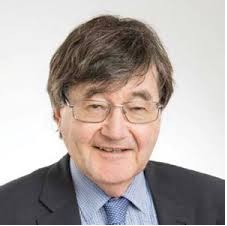
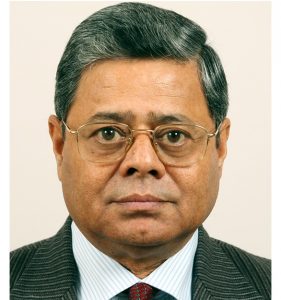
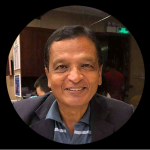
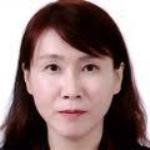
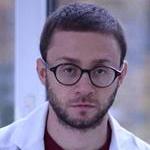
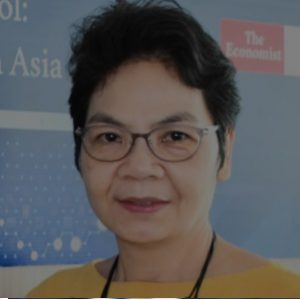
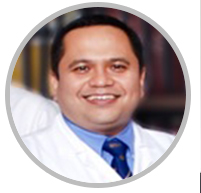 Prof. Dr. shamsul azhar shah
Prof. Dr. shamsul azhar shah